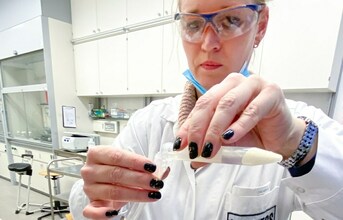
LANXESS, one of the world's largest suppliers of antimicrobial protection products, and Tennants GmbH, Bielefeld, Germany, have agreed on a cooperation for integrated solutions in the field of industrial plant hygiene.
The partners will deploy ATP technology to detect a possible contamination quickly and reliably with microorganisms.
Philipp Seidenstuecker, Global Marketing Manager Paints and Coatings in the Material Protection Products (MPP) Business Unit, LANXESS, explains, "Plant hygiene is a key element of proper preservation, especially in our ever tighter regulatory environment. The ATP technology from Tennants is an excellent way to monitor the hygiene level in the factory and to support the most efficient use of biocides. Customers of both companies benefit equally from this cooperation."
Jasper Stegeman, General Manager ATP Technology at Tennants, said, "LANXESS' comprehensive biocide solutions are a perfect match to our ATP technology to help our customers maintain their industrial plant hygiene."
This combination does not only account for paints and polymer manufacturing but also for the processing industries, including chemicals for inks, adhesives, plastics, textiles, leather, metalworking fluids, lubricants, and building materials.
Preventive hygiene control serves sustainability
Inadequate industrial plant hygiene can lead to microbial disruptions or contamination of raw materials, production water, equipment, and end products. Contaminated materials, which can lead to equipment failure and loss of productivity, are counterproductive.
Therefore, proper industrial plant hygiene, preservation with appropriate biocide formulations, and efficient, real-time, and quantitative microbial control mechanisms such as ATP technology are essential for sustainable production.
ATP technology can reliably quantify microbial content in any sample such as water, chemically complex samples, solids, and surfaces.
It provides results within minutes. "No microorganism goes undetected in quantitative analyses using 2nd generation ATP technology. There are no false-positive or false-negative results compared to conventional methods," Stegeman explains.
The test can be performed both in the laboratory and directly on-site at the plant. ATP technology can be used to determine the concentration of total biomass, including bacteria, yeasts, and moulds. The emphasis on using the tests is on prevention, not post-treatment.
"As a next step, we are planning joint webinars on ATP technology, plant hygiene and material preservation to explain the benefits of this holistic approach to our customers," announces Seidenstuecker.


























